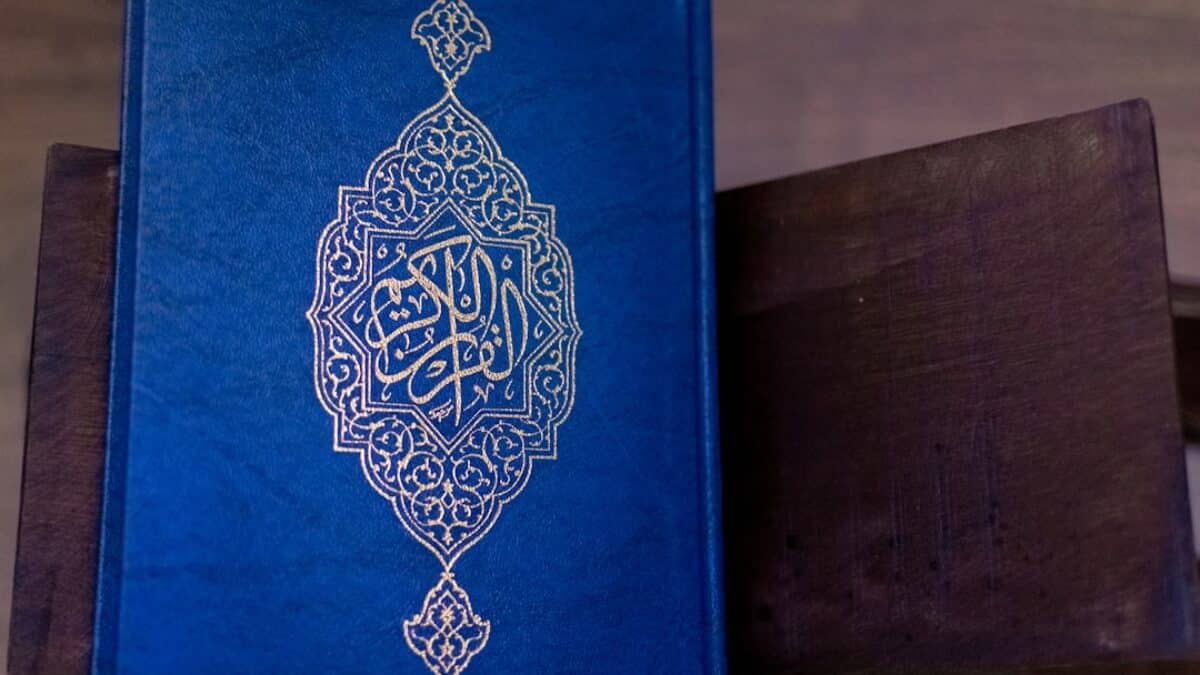Voluntary prayers, known in Arabic as Nafl Salah, are a beautiful gift that Allah has placed in the hands of every Muslim. These non-obligatory acts of worship open doors to divine mercy, deepen spiritual connection, and bring countless daily blessings into our lives. Whether you are new to this practice or seeking to enhance your existing routine, this comprehensive guide will walk you through every aspect of performing Nafl prayers with sincerity and precision.
Understanding Nafl Salah
The Spiritual Significance of Voluntary Prayers
Nafl Salah represents the extra mile in our relationship with Allah. While the five daily obligatory prayers form the foundation of our faith, voluntary prayers are like precious gems that adorn our spiritual journey. The Prophet Muhammad (peace be upon him) said, “The first thing for which a person will be brought to account on the Day of Resurrection will be his prayer. If it is complete, then the voluntary prayers will be recorded for him, and his obligatory prayers will be accepted” (Tirmidhi).
Categories of Voluntary Prayers
Voluntary prayers can be categorized into several types, each serving specific purposes:
- Sunnah Mu’akkadah: Emphasized voluntary prayers regularly performed by the Prophet
- Ghair Mu’akkadah: Optional prayers the Prophet occasionally performed
- Nafilah: General voluntary prayers without specific time restrictions
- Witr: The odd-numbered prayer performed after Isha
- Tahajjud: Night vigil prayers performed after sleeping
Key Components of Nafl Salah
Essential Prerequisites
Before beginning any Nafl prayer, certain conditions must be met:
- Purity (Taharah): Complete wudu or ghusl as required
- Appropriate Time: Understanding when Nafl prayers are permitted or discouraged
- Intention (Niyyah): Having a clear intention in your heart
- Clean Space: Ensuring the prayer area is clean and free from impurities
- Proper Dress: Wearing clean, modest clothing that covers the awrah
The Structure of Nafl Prayer
Nafl prayers follow the same fundamental structure as obligatory prayers but with flexibility in the number of rak’ahs:
| Component | Description | Number of Rak’ahs |
|---|---|---|
| Opening Takbir | Saying “Allahu Akbar” to begin | Variable (2-12) |
| Recitation | Surah Al-Fatiha plus additional verses | Based on prayer type |
| Ruku | Bowing position with glorification | Consistent format |
| Sujood | Prostration twice per rak’ah | Standard practice |
| Tashahhud | Sitting and testimony | Final rak’ah only |
| Salam | Concluding greetings | Ending the prayer |
Benefits and Importance
Spiritual Rewards
The rewards for voluntary prayers are immense and multi-faceted. Allah says in a sacred hadith, “My servant continues to draw near to Me with voluntary deeds until I love him” (Bukhari). This divine love translates into:
- Protection from Hellfire: Voluntary prayers serve as a shield against the Fire
- Intercession: They will intercede for the believer on the Day of Judgment
- Elevation of Status: Each voluntary prayer raises the believer’s rank in Paradise
- Spiritual Light: They illuminate the path to Allah and brighten the grave
Worldly Benefits
Beyond the hereafter, Nafl prayers bring tangible benefits to daily life:
- Inner Peace: Creates a sense of tranquility and contentment
- Decision Clarity: Istikharah prayer specifically guides important decisions
- Stress Relief: Regular prayer reduces anxiety and mental pressure
- Time Management: Structures the day around spiritual priorities
- Community Bonding: Encourages collective worship when performed in congregation
Practical Applications
Step-by-Step Guide to Common Nafl Prayers
1. Sunnah Prayers Associated with Obligatory Salah
These are the most recommended voluntary prayers, strongly encouraged by the Prophet:
Fajr Sunnah
- Before Fajr: 2 rak’ahs
- Recite longer surahs like Al-Kafirun and Al-Ikhlas
- Best time: After the first adhan until the beginning of true dawn
Zuhr Sunnah
- Before Zuhr: 4 rak’ahs (can be prayed as 2+2)
- After Zuhr: 2 rak’ahs
- Ideal for seeking forgiveness and midday blessings
Creating a Sustainable Nafl Routine
Building a consistent voluntary prayer practice requires strategic planning:
Morning Routine
Start your day with these powerful prayers:
- Ishraq Prayer: 2-4 rak’ahs performed 15-20 minutes after sunrise
- Duha Prayer: Minimum 2 rak’ahs, maximum 12, prayed mid-morning
- Chasht Prayer: Optional 2-4 rak’ahs during late morning
Evening Routine
Wind down your day with these spiritual practices:
- Asr Sunnah: 4 rak’ahs before Asr (highly recommended)
- Maghrib Sunnah: 2 rak’ahs after Maghrib
- Witr Prayer: Odd number of rak’ahs (1, 3, 5, 7, 9, or 11) after Isha
Special Occasion Nafl Prayers
Tahajjud: The Night Vigil
The crown jewel of voluntary prayers, Tahajjud offers unparalleled spiritual experiences:
- Best Time: Last third of the night, approximately 2-3 hours before Fajr
- Recommended Rak’ahs: 8 (in sets of 2), but any even number is acceptable
- Preparation: Sleep first, then wake up refreshed for worship
- Recitation: Long, heartfelt recitation with crying and humility
Taraweeh: Ramadan Special
During Ramadan, Taraweeh prayers become a communal celebration:
- Format: 8-20 rak’ahs in sets of 2
- Timing: After Isha prayer until before Witr
- Recitation: Complete Quran recitation over the month
- Community Aspect: Best performed in congregation at the mosque
Frequently Asked Questions
What is the difference between Sunnah and Nafl prayers?
While the terms are often used interchangeably, there are subtle distinctions. Sunnah prayers are those specifically performed by the Prophet Muhammad (peace be upon him) regularly, carrying more weight and reward. Nafl prayers are general voluntary prayers beyond the Sunnah, offering flexibility in timing and number of rak’ahs. Both are voluntary, but Sunnah prayers are more strongly encouraged and have specific times associated with them.
Can I pray Nafl salah while traveling?
Yes, you can pray Nafl salah while traveling, but with some considerations. The Prophet would reduce his voluntary prayers during journeys, focusing on the obligatory ones. While traveling, you may:
- Shorten your Nafl prayers (2 rak’ahs instead of 4)
- Combine them with obligatory prayers
- Skip some if time is extremely constrained
- Perform them sitting if traveling by vehicle
However, maintaining at least some voluntary connection with Allah, even if minimal, is highly meritorious during travels.
What if I miss my regular Nafl prayers due to work or other commitments?
Allah is Most Merciful and understands our circumstances. If you miss regular Nafl prayers:
- Make Intention: Renew your commitment to restart when possible
- Qadha (Make-up): You can make up missed Nafl prayers at any permitted time
- Consistency Over Perfection: Focus on maintaining some voluntary prayer rather than abandoning it entirely
- Alternative Times: Use lunch breaks or commute time for brief 2-rak’ah prayers
- Family Integration: Involve family members to create accountability and support
How do I know if my Nafl prayers are being accepted?
While we cannot see the divine acceptance directly, there are signs of acceptance:
- Increased Khushoo: Feeling more concentration and humility in prayers
- Life Improvements: Noticeable positive changes in character and circumstances
- Consistent Desire: Growing love for prayer and reduced procrastination
- Peaceful Sleep: Better rest after Tahajjud or evening prayers
- Community Impact: Inspiring others toward voluntary worship
Remember, the mere act of sincere worship is itself a sign of Allah’s favor, as the ability to pray comes from Him.
Is it permissible to pray Nafl salah in congregation?
Yes, certain Nafl prayers are excellent for congregational worship:
- Taraweeh: Specifically designed for congregation during Ramadan
- Tahajjud: Permitted in congregation, especially during Ramadan
- Witr: Can be prayed in congregation after Isha
- Special Occasions: Rain prayer (Salat al-Istisqa) and eclipse prayers (Salat al-Kusuf)
However, regular daily Sunnah prayers are best performed individually at home, following the Prophet’s example of making his home a place of worship.
What should I recite during Nafl prayers?
The recitation in Nafl prayers offers wonderful variety:
- Long Surahs: In Tahajjud, recite longer passages like Al-Baqarah or Al-Imran
- Short Surahs: In quick Sunnah prayers, use shorter surahs like Al-Asr to Al-Nas
- Thematic Recitation: Match surahs to needs – Al-Falaq and An-Nas for protection, Al-Waqiah for sustenance
- Personal Supplications: After recitation, add heartfelt dua in your language
- Quran Memorization: Use Nafl prayers to practice newly memorized verses
The Prophet would sometimes recite the same surah in both rak’ahs, and other times vary them. The key is presence of heart and understanding what you recite.
Can women pray Nafl salah during menstruation?
During menstruation or post-natal bleeding, women are exempt from all forms of prayer, including Nafl. However, they can maintain spiritual connection through:
Remembrance (Dhikr): Continuous glorification of Allah throughout the day Supplications
























Post Comment